Text
A professor gave us an extra credit option: take a picture of yourself outside, doing something that you would not usually do. We were told not to take it too seriously. Here is my entry:

I maintain that sticking my head in the mailbox is not something I do on a regular basis.
159K notes
·
View notes
Text
My favorite Shakespeare thing is when he writes a major plot point but just has someone tell us about it to save on special effects.
Hamlet gets kidnapped by pirates but we don’t see that part. It’s a letter.
The Oracle of Delphi shows up in the Winter’s Tale and rather than do all the special effects required to make that adequately supernatural, two guys come on stage and go “woah that was cool”
There’s a big storm on the night that Duncan is murdered and we learn about this when half the cast of Macbeth says “sure was stormy last night”
Shakespeare, the OG low-budget director taking the easy way out.
5K notes
·
View notes
Text
you do NOT want to be a vampire. sit down. you do NOT long for the night. you have seasonal depression. you would miss garlic too much. you would get killed by other vampires because you do NOT have the social skills required to keep up the ruse. BE REALISTIC.
8K notes
·
View notes
Photo










Breakfast Across the Globe
881K notes
·
View notes
Text

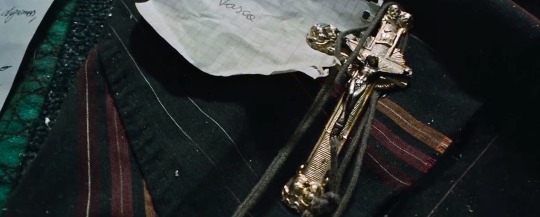
In a special place in my home I keep only memories, keepsakes from the cordillera: photos of many of those who died, objects from the plane, things I collected from everyone who died and who we did not expect to stay alive. So I save them in this altar, which is my most sacred and beloved piece of furniture. I carried back a lot of objects in a bag, but there were some things that we didn’t know which dead boy they belonged to, nor did any survivor recognise it as his own. [...] I have dozens of things from ’72.
But the thing I value most, because I feel that it symbolises everything we lived through, is a silver cross that is missing its left arm. It is a cross that somebody had hanging over his heart, although I found it lying in the snow. It is about 4cm long, and the whole arm that’s left measures less than 2cm. It suffered some sort of violent impact in the centre – whoever had it received a severe blow to the middle of his chest. But what moves me most about it is that despite being dented, despite the fact that it’s missing an arm, with the metal all jagged and torn, all the same it keeps being, unmistakably, a cross. That was what happened to us. We were dented and bruised, beaten down and terribly abused, but we kept on being whole men.
#today in details i'm so glad they included in this movie#that cross means so much to him#society of the snow#gustavo zerbino#uruguayan flight 571#andes plane crash#pablo vierci
105 notes
·
View notes
Text
Every summer I forget how much I fucking love spiders I’ve drunk one every day this week
97K notes
·
View notes
Text
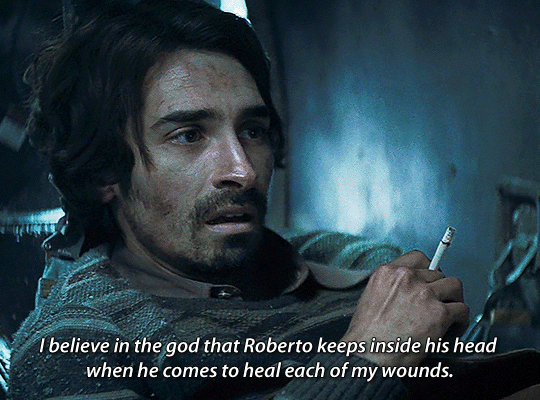

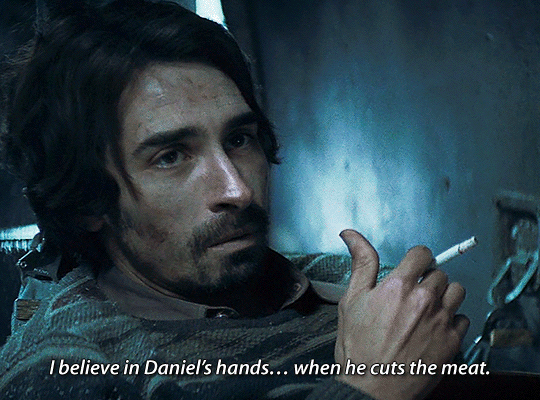
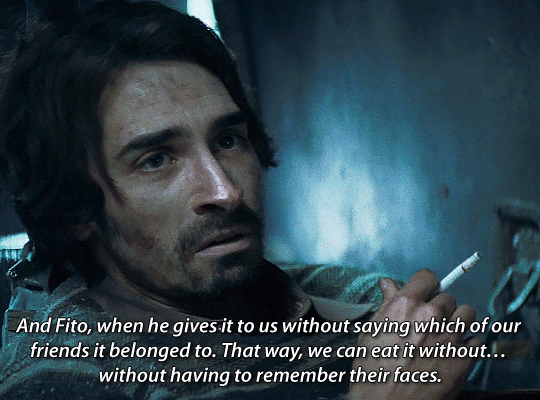


SOCIETY OF THE SNOW (2023) dir. J. A. Bayona
‘Cause my faith… Sorry, Numa, isn’t in your God. Because that God tells me what I’m supposed to do at home. But he doesn’t tell me what to do on the mountain. What’s happening here is a completely different situation. Numa. This is my heaven, I believe in another god.
854 notes
·
View notes
Text
Gustavo Zerbino, guardian of memories
Gustavo's chapter is one of my favourite things about Vierci's Society of the Snow, and every time I read this part it rips my heart out.
I handed a piece of paper to Sergio, who was with the medic José Bravo, paper which I had torn out of a notebook where I wrote down the names of each person who had died, indicating the corresponding pile of bones for each name. I acquainted the mountaineers with the remains of all of them, so that if at some future date their relatives came here, each one would be able to find the remains of their son and take him home if they wanted. Sergio stared at me as though I had lost my senses. I was with them for two hours at the nose of the plane with that paper, explaining everything to them. I wanted someone else to know. [...] I knew that Nando’s mother and sister were on this side, along with Liliana Methol. I knew that for two reasons: because they might be food tomorrow and, if we were to get out alive, their families could take them back to Montevideo if they wished. I knew who was here, who was there, who was in between, each scattered in his own place.
Sergio Díaz took my hand and said, ‘Thank you, thank you, Gustavo, but it doesn’t matter, it’s over, and you don’t need to worry any longer.’ He wanted to protect me, but I wanted to protect my friends.
#society of the snow#pablo vierci#gustavo zerbino#miracle in the andes#uruguayan air force flight 571
28 notes
·
View notes
Note
hold on sorry you're telling me the name of the boat was "the terror"?? i always assumed that was a retroactive name! did they WANT things to go horrifically awry???
obsessed with the implication that nominative determinism could have saved them
#not me seeing this while I’m literally in the middle of rewatching the show#and just commented on how lucky they were that the ship had such a fitting name#the terror
24K notes
·
View notes
Text
One of my favourite bits of media history trivia is that back in the Elizabethan period, people used to publish unauthorised copies of plays by sending someone who was good with shorthand to discretely write down all of the play's dialogue while they watched it, then reconstructing the play by combining those notes with audience interviews to recover the stage directions; in some cases, these unauthorised copies are the only record of a given play that survives to the present day. It's one of my favourites for two reasons:
It demonstrates that piracy has always lay at the heart of media preservation; and
Imagine being the 1603 equivalent of the guy with the cell phone camera in the movie theatre, furtively scribbling down notes in a little book and hoping Shakespeare himself doesn't catch you.
137K notes
·
View notes
Text
#this reminds me of what was said about marcelo's actor in the book: #'a group of survivors clustered around the actor playing the captain- Marcelo-' #'looking for physical differences because he looked so much like the real Marcelo' #and it was the same case for many of the actors #the likenesses the actors have to the people they portrayed range from 'very similar' to 'downright identical' #i wonder if it was almost cathartic (in a way) for the survivors and loved ones to 'see' their friends and family members again #society of the snow #enzo vogrincic
I think about this a lot, too. It must've been so surreal for them.

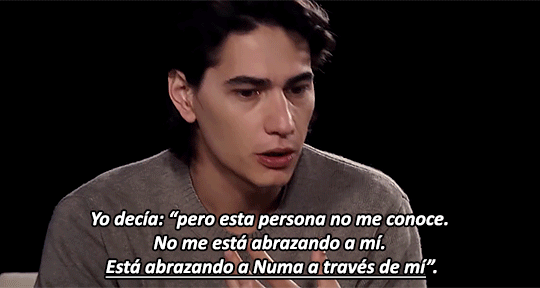


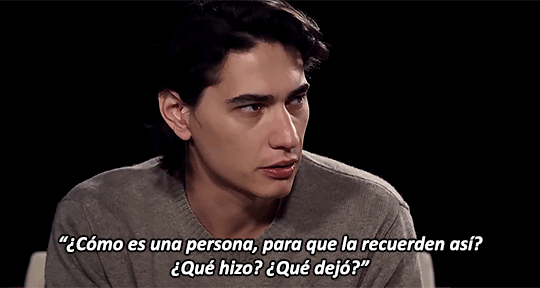
Something happened to me that I always talk about. I would say (to the survivors): "Hi, Enzo, I play Numa" and they would say 'Oof, Numa'. And they would give me a hug."
I would say, "But this person doesn't know me, he's not hugging me. He's hugging Numa through me."
And it was very powerful. You saw there what he was leaving. There is something inexplicable about Numa that he left in others, that they feel a weight. They feel an extra gratitude.
There was something very heavy there that you felt, and it left you with that responsibility. You would say: "Ah, look at this person, how special. How they remember him.
What is a person like to be remembered like that? What did he do? What did he leave?"
ENZO VOGRINCIC
#aaaaand i'm crying again#society of the snow#enzo vogrincic#numa turcatti#uruguyan air force flight 571
1K notes
·
View notes
Text
I definitely agree with everything you've said here, too! It's just that his standing in the group is hard to convey fully from his perspective, but they absolutely did the best they could.
It was a clever choice to have him be the narrator. Letting us get to know him and care about him, and for those who don't know the story, assume from the beginning that he's going to live, only to lose him - that's basically what it was like for the group, too. By doing that they let us feel a tiny, tiny bit of what losing him was like for them.
Ugh. So many "if only"s for him. It'll never not break my heart.
why I'm happysad that they let Numa be the narrator in Society of the Snow.
So if you, like me, have been more than a little obsessed with the story of Uruguayan Air Force Flight 571 for a very, very long time, your stomach probably dropped like mine did when the narrator introduced himself as Numa Turcatti. (My immediate thought was, "why would you do this to us?!") If you went in blind, I feel for you!
But while the film gave us a version of Numa, since it's from his perspective what it doesn't really give us is the group's perspective on him. He comes across a bit like an outsider, and although, yes, his only surviving friend was Pancho Delgado, he wasn’t an outsider for long at all. On the contrary. So, here are a few excerpts from the books that tell you more about what he was like and how much they all loved him, because I feel like that’s important.
From Alive, Piers Paul Read:
Next to Parrado, Numa Turcatti was the most generally beloved of the boys. [...] Since he had known few of the boys before leaving Montevideo, it was proof of his strength, simplicity and complete lack of malice that he became so loved and respected by them.
On celebrating Numa's birthday while trapped under the avalanche:
The boys gave him an extra cigarette and made a birthday cake out of snow. [...] Many would have liked to give him a better time on his birthday, but instead it was he who improved their spirits. "We have survived the worst," he said. "From now on, things can only get better."
From Society of the Snow, Pablo Vierci:
‘When I talk about Numa, I can’t help but cry,’ says Coche Inciarte. ‘He’s the best person I’ve ever met in my life. However tenderly I cared for those who were losing heart, Numa did it much better because he never got tired. He was constantly aware of everyone else’s distress. He radiated peace, he never gave up, and when he came near me, I felt like Jesus Christ himself was among us, with such mercy and compassion in his eyes. I don’t know where he got his strength.’
‘I could never imagine him living in everyday life, because I met him and I loved him in that torment of the Andes,’ says Coche. ‘He had a hard time eating, like I did. We ate the bare minimum in order to survive. I lost one hundred pounds, he lost more. And just like me, his leg became infected after the avalanche. We operated on our legs together with a razor blade. But he deteriorated more quickly than I did, because he had given so much more; he had been too generous.’
Moncho Sabella:
Numa taught us about the anonymous heroism of giving more of himself to others than he reserved for himself. In that balance between solidarity and selfishness, which decided whether you lived or died, he tilted the balance in favour of the others to the detriment of himself. [...] And when the avalanche came and covered the plane, the one who worked the hardest, the one who removed the most snow so that we could come back to life, was Numa. Again, he was exceeding his own limits. [...] In the end, his immune system was so devastated that he got one infection after another. We gave him antibiotics and the doctors on the mountain attended to him every day, but finally he left us. And with him, we all died a little more.
Gustavo Zerbino:
I always remember Numa up there, full of despair, when he told us that he would rather die watching the sky, walking, instead of ending life immobilised in a cave of broken metal. For that reason, after the avalanche, he kept digging and removing snow without rest until he burned himself out with exhaustion. He always thought that his time had come but he wanted to work until the final moment, doing whatever he could to help. I cared for him all those days; I saw how he was hurried to the brink of death, with no defences, getting one infection after another. I went up to him and first I gave him a kiss on the cheek to greet him and asked him how he was doing. He just stared at me with a kind of infinite peace. He never complained. But Numa was quickly deteriorating: from that physical strength and vigour he had had at the beginning, he finished as a skeletal dying boy. He held on to his characteristic qualities until the end though. He was that same stoic guy when he was strong and when he was wasting away.
‘Gustavo Zerbino didn’t tell us the whole truth [about the expedition] because he didn’t want us to be discouraged. When I asked Numa about it, he couldn’t lie and he told me: “As far as we went, all you could see were more mountains.” But even so, he always wanted to be an expeditionary. “I want to go,” he told me, even though I knew at once he could never go, he was too exhausted and too hurt.’ So Numa approached Daniel Fernández, knowing that he had influence over the others, and he tried to convince him: ‘I can do it, Daniel, please believe me. I can do it.’ Daniel recalls, ‘When I told him that his injury made it impossible, he started working even harder than ever, like a bull, shovelling snow to unbury the plane after the avalanche to show that yes, he could do it.’
Finally, from Alive, after Numa died:
On this particular afternoon, Javier Methol lay at the back of the plane. "Be careful," he said to Coche as he rose and stepped over Numa's body. "Be careful not to step on Numa."
"But Numa's dead," said Parrado.
Javier had not realised what had happened, and now that he understood his spirits dropped completely. He wept as he had wept at the death of Liliana, for he had grown to love the shy and simple Numa Turcatti as though he were his brother or son.
I'm not sure the Numa we see in the film is quite the same person that he actually was on that mountain, but I'm so, so glad that he got a voice. He fought so hard for them all.
So, yeah. In the immortal words of Jake Peralta,

209 notes
·
View notes
Text
why I'm happysad that they let Numa be the narrator in Society of the Snow.
So if you, like me, have been more than a little obsessed with the story of Uruguayan Air Force Flight 571 for a very, very long time, your stomach probably dropped like mine did when the narrator introduced himself as Numa Turcatti. (My immediate thought was, "why would you do this to us?!") If you went in blind, I feel for you!
But while the film gave us a version of Numa, since it's from his perspective what it doesn't really give us is the group's perspective on him. He comes across a bit like an outsider, and although, yes, his only surviving friend was Pancho Delgado, he wasn’t an outsider for long at all. On the contrary. So, here are a few excerpts from the books that tell you more about what he was like and how much they all loved him, because I feel like that’s important.
From Alive, Piers Paul Read:
Next to Parrado, Numa Turcatti was the most generally beloved of the boys. [...] Since he had known few of the boys before leaving Montevideo, it was proof of his strength, simplicity and complete lack of malice that he became so loved and respected by them.
On celebrating Numa's birthday while trapped under the avalanche:
The boys gave him an extra cigarette and made a birthday cake out of snow. [...] Many would have liked to give him a better time on his birthday, but instead it was he who improved their spirits. "We have survived the worst," he said. "From now on, things can only get better."
From Society of the Snow, Pablo Vierci:
‘When I talk about Numa, I can’t help but cry,’ says Coche Inciarte. ‘He’s the best person I’ve ever met in my life. However tenderly I cared for those who were losing heart, Numa did it much better because he never got tired. He was constantly aware of everyone else’s distress. He radiated peace, he never gave up, and when he came near me, I felt like Jesus Christ himself was among us, with such mercy and compassion in his eyes. I don’t know where he got his strength.’
‘I could never imagine him living in everyday life, because I met him and I loved him in that torment of the Andes,’ says Coche. ‘He had a hard time eating, like I did. We ate the bare minimum in order to survive. I lost one hundred pounds, he lost more. And just like me, his leg became infected after the avalanche. We operated on our legs together with a razor blade. But he deteriorated more quickly than I did, because he had given so much more; he had been too generous.’
Moncho Sabella:
Numa taught us about the anonymous heroism of giving more of himself to others than he reserved for himself. In that balance between solidarity and selfishness, which decided whether you lived or died, he tilted the balance in favour of the others to the detriment of himself. [...] And when the avalanche came and covered the plane, the one who worked the hardest, the one who removed the most snow so that we could come back to life, was Numa. Again, he was exceeding his own limits. [...] In the end, his immune system was so devastated that he got one infection after another. We gave him antibiotics and the doctors on the mountain attended to him every day, but finally he left us. And with him, we all died a little more.
Gustavo Zerbino:
I always remember Numa up there, full of despair, when he told us that he would rather die watching the sky, walking, instead of ending life immobilised in a cave of broken metal. For that reason, after the avalanche, he kept digging and removing snow without rest until he burned himself out with exhaustion. He always thought that his time had come but he wanted to work until the final moment, doing whatever he could to help. I cared for him all those days; I saw how he was hurried to the brink of death, with no defences, getting one infection after another. I went up to him and first I gave him a kiss on the cheek to greet him and asked him how he was doing. He just stared at me with a kind of infinite peace. He never complained. But Numa was quickly deteriorating: from that physical strength and vigour he had had at the beginning, he finished as a skeletal dying boy. He held on to his characteristic qualities until the end though. He was that same stoic guy when he was strong and when he was wasting away.
‘Gustavo Zerbino didn’t tell us the whole truth [about the expedition] because he didn’t want us to be discouraged. When I asked Numa about it, he couldn’t lie and he told me: “As far as we went, all you could see were more mountains.” But even so, he always wanted to be an expeditionary. “I want to go,” he told me, even though I knew at once he could never go, he was too exhausted and too hurt.’ So Numa approached Daniel Fernández, knowing that he had influence over the others, and he tried to convince him: ‘I can do it, Daniel, please believe me. I can do it.’ Daniel recalls, ‘When I told him that his injury made it impossible, he started working even harder than ever, like a bull, shovelling snow to unbury the plane after the avalanche to show that yes, he could do it.’
Finally, from Alive, after Numa died:
On this particular afternoon, Javier Methol lay at the back of the plane. "Be careful," he said to Coche as he rose and stepped over Numa's body. "Be careful not to step on Numa."
"But Numa's dead," said Parrado.
Javier had not realised what had happened, and now that he understood his spirits dropped completely. He wept as he had wept at the death of Liliana, for he had grown to love the shy and simple Numa Turcatti as though he were his brother or son.
I'm not sure the Numa we see in the film is quite the same person that he actually was on that mountain, but I'm so, so glad that he got a voice. He fought so hard for them all.
So, yeah. In the immortal words of Jake Peralta,

209 notes
·
View notes
Text
It's so weird, though nice, to have company at this table after all this time
Obsessive personality problems: it’s 2017 and you still get angry and emotional every time you’re reminded that Numa Turcatti didn’t make it out alive from the Andes in 1972.
18 notes
·
View notes
Text
This film. This event has haunted me since the late 90s when I saw Alive and then read all the books about it that I could get my hands on, and for years I've wished they'd make a new adaptation. A proper one, an authentic and respectful and honest one. And this was that. It can never tell the whole story, but it sure came closer.

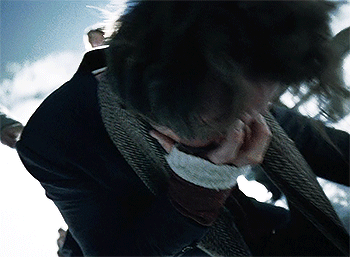
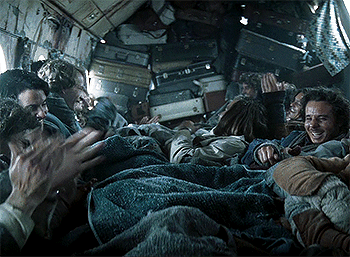



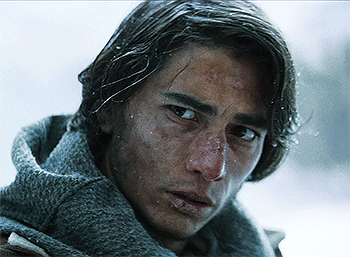
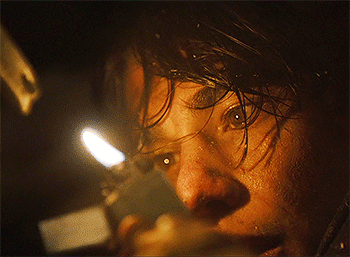

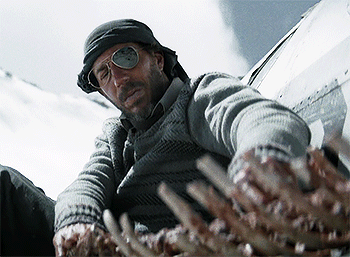

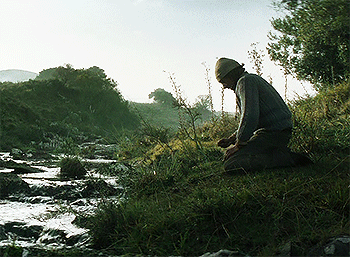
Who were we in the mountains?
3K notes
·
View notes
Text

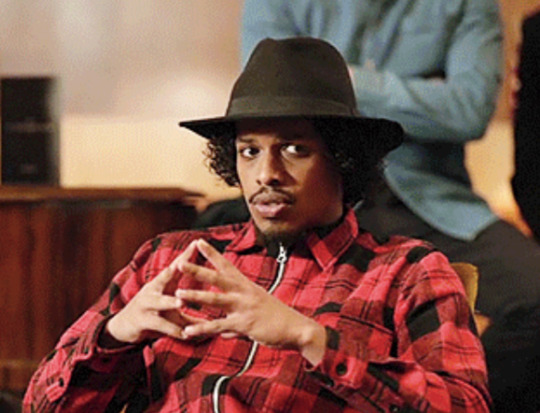








i’ve been clearing out old screenshots in my camera roll but i have ted lasso brain rot so you all have to see what they made me think of: himbos (part three. part two here, part one here)
2K notes
·
View notes
Note
God I know right? so terrible when show writers don't conform to the same tired cliche of making a woman nothing more than a reward for men's character development! how awful of them to treat Keeley like a fully realized human being who deserves her own choices! Roy has done the bare minimum and deserves a hole to fuck! 🙄🙄🙄🙄🙄
Well, hi there! My first anon, what fun.
Very interesting read you took there, but my problem was actually how the writers had a sweet, supportive relationship and decided to end it, off screen in between seasons, for the drama.
3 notes
·
View notes